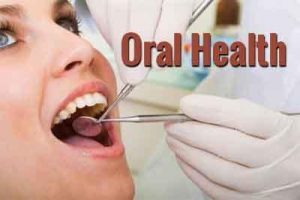- Home
- Editorial
- News
- Practice Guidelines
- Anesthesiology Guidelines
- Cancer Guidelines
- Cardiac Sciences Guidelines
- Critical Care Guidelines
- Dentistry Guidelines
- Dermatology Guidelines
- Diabetes and Endo Guidelines
- Diagnostics Guidelines
- ENT Guidelines
- Featured Practice Guidelines
- Gastroenterology Guidelines
- Geriatrics Guidelines
- Medicine Guidelines
- Nephrology Guidelines
- Neurosciences Guidelines
- Obs and Gynae Guidelines
- Ophthalmology Guidelines
- Orthopaedics Guidelines
- Paediatrics Guidelines
- Psychiatry Guidelines
- Pulmonology Guidelines
- Radiology Guidelines
- Surgery Guidelines
- Urology Guidelines
Which medicines cause Dry mouth symptoms in older adults?

For older adults, dry mouth can be a common side effect of prescribed medications. Having dry mouth means you don't have enough saliva or spit, to keep your mouth wet. The condition can lead to problems chewing, eating, swallowing, and even talking. What's more, dry mouth puts you at higher risk for tooth decay and oral infections.
However, there's much we don't understand about the connection between medications and dry mouth in older adults. Recently, researchers examined 52 related studies to learn more. Their research was published in the Journal of the American Geriatrics Society.
The researchers reported that there are a number of medications that are linked to dry mouth. These include
- Medications used to treat urinary incontinence,
- Antidepressants
- Medicines for insomnia and anxiety
- Diuretics
. In fact, medications used to treat urinary incontinence were nearly six times more likely to cause dry mouth than a placebo. (A placebo is a "sugar pill" or "dummy" treatment that is given in research studies to compare effects of an actual treatment compared to no treatment at all).The researchers suggested that healthcare providers should regularly monitor and review all medications to identify potential side effects and to adjust doses or change medications when necessary.
Next Story
NO DATA FOUND

Disclaimer: This site is primarily intended for healthcare professionals. Any content/information on this website does not replace the advice of medical and/or health professionals and should not be construed as medical/diagnostic advice/endorsement or prescription. Use of this site is subject to our terms of use, privacy policy, advertisement policy. © 2020 Minerva Medical Treatment Pvt Ltd